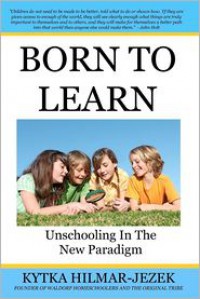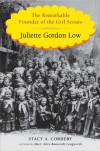Currently reading
Juliette Gordon Low: The Remarkable Founder of the Girl Scouts
What I Talk About When I Talk About Running
 Since we are probably going to be an eclectic homeschooling family, I love reading about unschooling and thinking about how I can incorporate as much of it as possible. I have thoroughly enjoyed titles such as Dumbing Us Down by John Taylor Gatto, The Unschooling Handbook by Mary Griffith, and Free Range Learning by Laura Grace Weldon.
Since we are probably going to be an eclectic homeschooling family, I love reading about unschooling and thinking about how I can incorporate as much of it as possible. I have thoroughly enjoyed titles such as Dumbing Us Down by John Taylor Gatto, The Unschooling Handbook by Mary Griffith, and Free Range Learning by Laura Grace Weldon.So, when I received an email to let me know the Kindle edition of Born To Learn: Unschooling in the New Paradigm by Kytka Hilmar-Jezek was available free for one day only, I was excited and replied enthusiastically. I immediately downloaded it and read the entire book the same day (it's very short).
I was disappointed.
The book is not a galley proof; it was published about 7 months ago. Yet it was riddled with typos and grammatical errors. Punctuation issues, incorrect use of its and it's, words missing letters - the sheer number of errors was distracting. The book needs some major editing.
I hope this was unintentional, but there was an underlying tone throughout the book that felt condescending and judgmental. Several times she used phrases such as "I guess you missed that memo" and "newsflash." The book felt more like a diatribe against those who do not adhere to her philosophies. A few examples:
- "When mothers left the home and placed the care of their children into impersonal holding cells such as day-care, the unraveling of family began..."
- "I believe that the inner life of a child in school is one of a wounded and confused being who cannot comprehend why he cries for the fulfillment of his innate expectations go unanswered."
- "The parents are as sick as the schools they force their children to serve their sentences in..."
- "If you put your personal beliefs and values aside and you look at it from a logical standpoint - we could say that school is a form of segregation, against a child's civil rights. Rosa Parks does not have to sit on the back of the bus anymore - but so why should our children have to sit in school?"
I have to admit, I find some of those statements downright offensive. There is no mercy toward those who may have special circumstances which guide their decisions. There is no acknowledgment that some families may make different choices because either 1) their child actually does thrive in a school setting, or 2) their local school is fantastic and does encourage its students to think for themselves, question, and be creative. These possibilities are not mentioned at all, even in passing. It was as if all families are viewed as having the same choices available to them, and all schools viewed as being the same oppressive, evil entity; therefore school is never a valid choice.
There were moments when I agreed with Hilmar-Jezek wholeheartedly. The natural inquisitiveness of children should be encouraged, they do have a powerful, innate desire to learn. Children need to be given opportunities to seek out deeper knowledge when a topic interests them, as well as the space to actually experience it. I loved when she wrote: "We have to understand and accept that learning is so much more than the acquisition of mass quantities of information. Education should strive to awaken the child's natural capabilities, and not educate."
But I wish she had allowed statements like that to stand on their own. It would have been inspiring had she focused on encouraging parents to listen to their instincts and the great aspects of unschooling! Superior attitudes and assumptions about those who make different choices just ruin it. For me, the acrid tone of the book was so strong it tainted all of its good points. I just couldn't get past that, especially since I've read a number of fantastic unschooling books whose authors did not feel the need to resort to gross generalizations about, and negativity toward, others.
If they are able to overlook its editing problems, readers who consider themselves radical unschoolers, extreme adherents of attachment parenting, or who have an intense distrust of the U.S. public school system may enjoy reading Born To Learn: Unschooling in the New Paradigm. Unfortunately, it wasn't for me.




